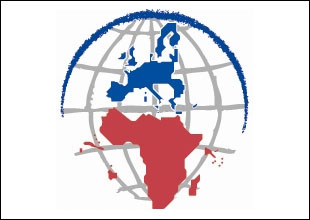ACP-EU JPA PRESS RELEASE on the fact-finding mission to Fiji
 26 July 2012/ACP-EU JPA: First and foremost, the Mission expresses its gratitude to the Government and people of Fiji for making this Mission possible. The Mission is also thankful to all the stakeholders whom it has had the privilege of meeting and the frank and open discussions with all of them. This will assist the JPA to have a better understanding of the political situation in Fiji. The mission will submit its full report to the Bureau of the ACP-EU Joint Parliamentary Assembly (JPA) at its meeting that will be held in Brussels in September 2012, and will eventually be made available to the Government and all the political stakeholders.
26 July 2012/ACP-EU JPA: First and foremost, the Mission expresses its gratitude to the Government and people of Fiji for making this Mission possible. The Mission is also thankful to all the stakeholders whom it has had the privilege of meeting and the frank and open discussions with all of them. This will assist the JPA to have a better understanding of the political situation in Fiji. The mission will submit its full report to the Bureau of the ACP-EU Joint Parliamentary Assembly (JPA) at its meeting that will be held in Brussels in September 2012, and will eventually be made available to the Government and all the political stakeholders.
Fiji is a Member of the ACP Group of States and a signatory to the ACP-EU Cotonou Agreement, which inter-alia, provides that the essential elements of cooperation are democracy, good governance and human rights. The JPA, which is one of the joint institutions of the Cotonou Agreement, sent a fact-finding mission to Fiji, in order to better understand the democratic challenges of Fiji, and to assist in the local and international process of finding a solution to the political problems that have plagued the people of Fiji in the last 25 years. The JPA is interested in seeing that Fiji returns to democratic and parliamentary democracy.
The purpose of the Mission is to find out the progress on the process for the restoration of democracy, the holding of free and fair elections, and eventually, effective and truly representative parliamentary democracy. The JPA mission acknowledges that the process for the restoration of democracy depends on the people of Fiji themselves. The international community can provide advice and financial and technical support to the efforts of the Fijian people to find a solution and create a stable and sustainable democratic system.
In this regard, the process of Constitution making and electoral process is extremely important. The process must lead to the establishment of strong and effective institutions of governance, namely, an effective legislature that is able to oversee and scrutinise government action and provide checks and balances to the executive, as well as an independent judiciary.
While refraining from making specific recommendations for the constitution making process, the JPA mission believes that this must be guided by the general and commonly accepted international norms and values of democratic government and constitution making, such as consultation, dialogue and inclusiveness. In order to be credible and legitimate, this constitution making process must be widely representative and have the support and confidence of the people of Fiji. The process must lead to the holding of free and fair elections, which must be based on an electoral system that is open, transparent and representative. The process must promote national reconciliation and the foundation of a democratic and just society firmly established on the rule of law and respect for human rights.
The JPA mission believes that measures must be provided for the people to effectively contribute to the process and civic education will therefore be extremely important in this process. In this regard, it is important to guarantee the freedom of the press, freedom of association and respect for human rights, while underlining that the important process of constitution making cannot take place in a climate of fear and intimidation. The JPA mission takes note that the Government is taking steps to help address this.
ACP-EU Joint Parliamentary Assembly
http://www.europarl.europa.eu/intcoop/acp
***
